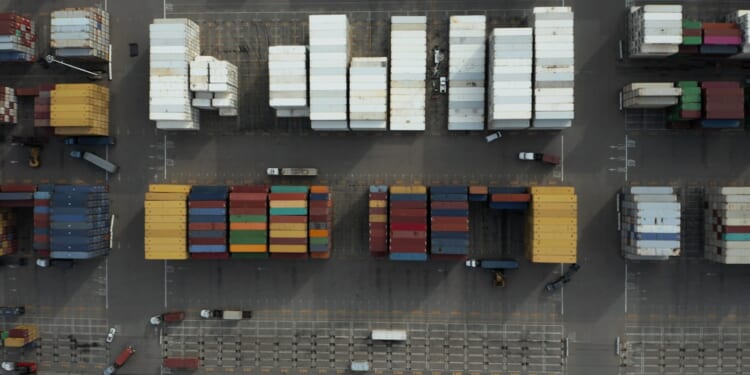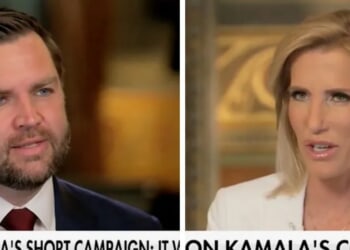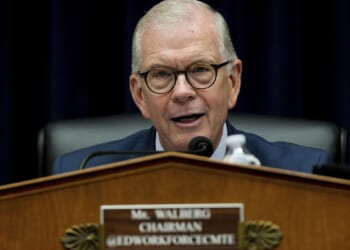Andrew Griffith is Shadow Secretary of State for Business and Trade and was a business executive for more than 25 years before entering Parliament in 2019.
Leaf through the many strategies published by this process heavy government and you could mistakenly conclude that Britain’s economic woes are under control and we are cruising to success. Not so. Despite a trade strategy, an industrial strategy, a plan for small businesses, and a steel strategy green paper, Whitehall has never been more confused – and trade is one of the biggest victims.
It has been four months now since Starmer jumped onto a haphazard video conference with President Trump to announce a trade deal. That deal was supposedly going to eliminate steel tariffs, alongside a tariff free quota for British cars and more trade in pharmaceuticals. A long and scandalous summer later and that deal is on life support.
The promised scrapping of steel tariffs has itself been scrapped, replaced by the Government’s suggestion that we should be grateful to now be charged ‘just’ 25 per cent rather than 50 per cent. Meanwhile, the UK steel industry continues to collapse in real time under the pressure of Ed Milliband’s extortionate energy prices.
The much-vaunted tariff free car exports come with a catch: a quota of 100,000 vehicles a year. That is just under what we exported to the US in 2024, but only half of the 199,000 we exported to our American cousins in 2019.
Quotas also impede flexibility year to year. With Jaguar Land Rover – one of the biggest exporters – now struggling with a cyber-attack, they may find themselves not filling their chunk of the quota this year but also unable to catch-up next year because you can’t get a ‘raincheck’ on unused quota volume.
Pharmaceuticals have disappeared from the agenda almost entirely. There were hints at cooperation during the announcement of a tech prosperity deal (which mostly amounts to cooperation between US and UK government departments rather than any cuts to tariffs), but these quickly evaporated.
This failure to actually remove the burdens British businesses face should not be surprising. It is symptomatic of a government that confuses announcement with action.
Ministers are trotted out every month to address self-inflicted woes with a new ‘strategy’ or ‘plan’ which the public by now surely realise will never be put into practice. The proverbial U-Turn is often already underway before the car has even started – if it starts at all.
What’s worse: Labour have been squandering a golden opportunity. The sands of the international trade system built in the 90s are shifting considerably. We don’t yet know what the result will look like, but it is obvious that newly nimble countries like our own have an enormous advantage over the sclerotic bureaucratic blocs like the EU.
The few parts of the US trade deal that have come to fruition prove this, just as Britain having been the first to secure such a deal does. The Government’s focus should now shift away from endless strategies and towards surfing those shifting sands by securing as many deals to benefit British businesses and consumers as possible.
Trade deals alone will not, however, be enough to turn Britain into a nation of exporters. I speak to businesses of all sizes regularly and I am often struck by how few of them mention trade and how many, across all domains, mention something the Government has all but committed to making worse: energy prices.
From pubs to pharmaceutical companies, from startups to semiconductor fabs, every business of every size in the UK is currently being penalised by the Government’s ‘de-growth’ energy strategy.
For high-tech manufacturing domains like aerospace, in which we excel, energy is often the biggest input cost. Right now, it is rising month after month with no end in sight.
Conservatives are not blameless here. We imposed Net Zero with zero plans as to how to achieve it, that’s why we abandoned that sinking ship. Labour instead are barrelling on at full speed.
There are no low energy rich countries. Across the world the amount of energy you produce is directly related to your GDP per capita. Already, energy prices in Birmingham, West Midlands are four times what they are in Birmingham Alabama and often twice what they are in Europe. That is no basis on which to compete.
Unfortunately, Labour are now imposing new carbon tariffs on imported goods and signing us up to the EUs carbon and net zero rules. That means our high-tech manufacturers, who often import lower margin, lower value components will pay more to do so before paying even more to assemble the high-quality products we want them to make.
Thankfully there is some hope. The many U-Turns, phases, and resets Labour have suffered to date suggest that like the monkey at a typewriter, slowly working his way toward Shakespeare, No10 may just hit on a winning formula eventually. Whether any of this will come in time for Britain’s exporters (who are now without a dedicated Exports Minister) is a more worrying question.


![Scott Bessent Explains The Big Picture Everyone is Missing During the Shutdown [WATCH]](https://www.right2024.com/wp-content/uploads/2025/11/Scott-Bessent-Explains-The-Big-Picture-Everyone-is-Missing-During-350x250.jpg)













